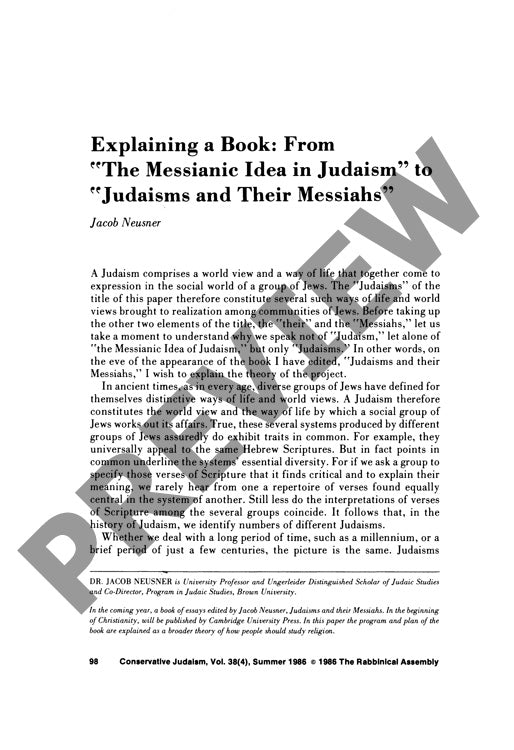Explaining a Book from the Messianic Ide
Couldn't load pickup availability
The quest to understand ancient Jewish messianic beliefs has long suffered from oversimplified frameworks that assume a single, unified "Messianic idea in Judaism." Yet Jewish communities between 200 BCE and 200 CE exhibited remarkably diverse interpretations of messianic themes, each embedded within distinct worldviews and ways of life. Through inductive, comparative analysis of Jewish texts and artifacts—treating each document first as autonomous evidence before examining broader connections—a more nuanced picture emerges of multiple Judaisms, each with its own relationship to messianic concepts. Moving beyond traditional deductive approaches that artificially aggregate disparate Jewish sources, this research applies three analytical relationships: autonomy (individual analysis), connection (relationships between texts), and continuity (integration within specific canonical frameworks). The evidence reveals messianic themes ranging from central systemic importance to marginal significance, varying by community and context. This paradigm shift, paralleling scholarly recognition of diverse ancient Christianities, demonstrates how messianic concepts function differently across religious systems and illuminates broader patterns in how communities construct and utilize eschatological ideas. Ancient Jewish religious thought, in its authentic complexity, resists harmonization into artificial unity and demands recognition of its inherent diversity for meaningful analysis.

More Information
-
Physical Description
-
Publication Information
Published 1986
ISBN
-
Publication Credits
Jacob Neusner

